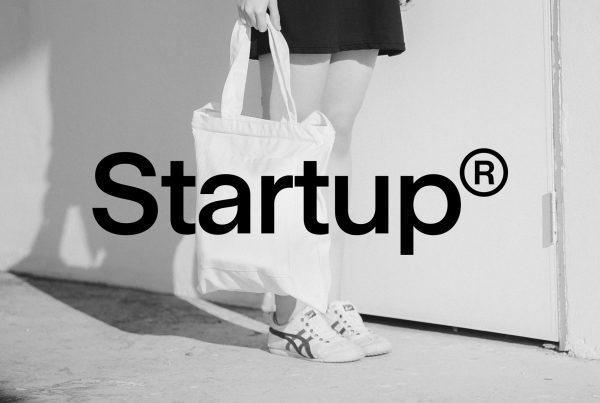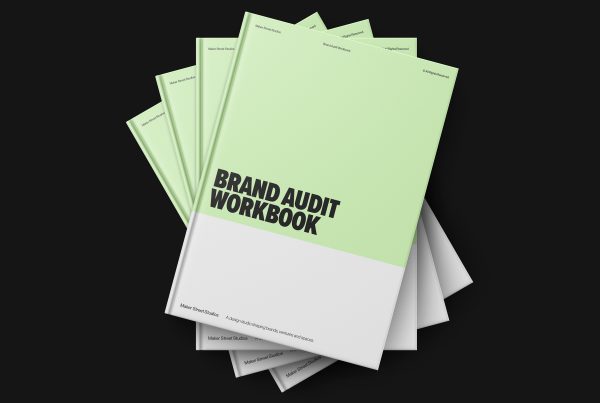Imagine this…
You roll into the office on a crisp Monday morning to find a cease and desist in your inbox. It’s unannounced, unwelcome and shot over by some random second rate programmers on the west coast.
You’ve got prior use, but launching a new business was exciting. There were many things to do and registering your trademark was at the top of the boring list. Some dodgy consultants trademarked in your sector well after you launched and now you’re sitting smack bang in the middle of a rock and a hard place.
It happens, and it happened to us.

Business owners rarely get a day off.
I walked into the office a little later in the morning the Monday after my wedding to get back into it (much to my wife’s dismay) and there it was…a bullshit cease and desist claiming that we were allegedly infringing on a registered trademark. I took a long walk, made a few phone calls and thought about everything I’d just learnt.
We’d been trading under our new name for a little over 12 months at that point (This was before Maker Street Studios) and I had no idea how we’d let this happen. We’re in branding, and the crew who issued the notice were programmers, software, doing totally different things on what felt like the other side of the world. We had no idea they existed – why would we? They wouldn’t know a quality logo if it slapped them in the rear end. The problem was about 8 months earlier (3 months after we started trading under the ‘alleged’ infringed name) they’d applied to register a trademark in class 35 and 42 (graphic design, logos, branding, etc). They did none of this work, never had and haven’t since (yes, they’re still making software). They did it purely to f*ck with us.
We had three options.
- Fight them. We were confident we had a case!
- Carry on, sweep it under the rug and try to trade around it.
- Rebrand.
We decided to fight and we fought. For a while. And it cost a tonne of money.
We decided to throw the towel in after they had reported and had all our social media accounts closed down, sent threats to our clients, and even sent quite an unpalatable email to our lawyer under the guise of someone else (though it was hilarious in hindsight and we laugh about it now).
This went back and forth for months.
We had a case! But it would have cost a bomb to continue fighting it in court. It was when our lawyer enlightened us with that fact that indeed we did work in branding and it was probably more commercially viable to simply rebrand. At the time it felt equally deflating and invigorating.
But it was rough and I wouldn’t wish it on anyone. In hindsight we made the right decision. Maker Street’s killing it. We’ve got some fantastic clients and some wonderful humans we work with… but at the time…well I’d be lying if I didn’t call it out – the tunnel felt pretty dark.
I’m not dropping this to call them out. Honestly, I wish them all the best! It was our fault. We screwed up. We failed to protect the only thing our clients could associate with us. We lost access to our marketing and communication tools overnight. It was like one day we had a business, and the next day – nothing.
It was shit!
From that day on, we made sure we baked some high-level advice and recommendations around trademarking and how to go about it directly into our service offering.
We helped our clients navigate the broad world of brand protection at a high level and with their eyes wide open. We worked hard to put a strong partnership in place with our lawyers at Redchip (one of Brisbane’s leading commercial legal firms), to give our clients the expert backing they deserve when protecting their brands.
At the end of the day, Branding is not (and never has been) all about logos, colours and pretty pictures. It’s about helping you craft a unique and ownable space in the world. It’s tough to find your place in a customer’s mind at the best of times so when you finally do, it’s critical to protect it.
Well built brands are investments and assets, and the right advice around how to protect that asset is crucial in future-proofing it.
For those of you who are more interested in how to go about brand protection than learning about all my mistakes…read on…
Also, this seems like a pretty good opportunity to bring up the fact that I’m not a lawyer. Maker Street does not provide legal advice or services. The ideas and concepts in this piece are loosely based on a basic understanding of law and trademark law and reflect my personal opinions and experiences.
That being said…
If you’re launching a new brand…
The last thing you want is to come up with the perfect name and find out someones already registered it.

At that point you can either give it a crack and see what happens or you can head back to the drawing board. Both options suck. If you decide to crack on and risk it – you’re setting yourself up for hours of legal disputes, fees and heartache (been there, done that!). Our advice is to always play it safe and sit your butt back down at that drawing board. It’s just not commercially worth it.
One of the easiest ways to make sure you’re good to go is by doing some simple online searches through IP Australia or if you’re launching a global brand, through WIPO. This will give you a rather elementary indication of whether there’s an active trademark against your brand name.
But unless you know what you’re looking for, the red flags can be hard to spot.
It’s not always obvious that you’re likely to infringe on another’s trademark by a visual search alone. Phonetics can play a big part, as do classification and classes among other things only great lawyers know to look for.
In a rather bizarre (totally made up) example.
Let’s say your business is called Nespresso and you sell motorbikes (weird), you’ll probably be okay if the coffee giant hasn’t trademarked in your class or classification. The question here is whether or not your brand name could cause confusion in the market and if it does it’s likely you’ll be infringing on a trademark – regardless of what you happen to sell.
If it doesn’t infringe but raises questions (like why on earth in a strange twist of events would a coffee manufacturer suddenly start selling motorbikes), then you’re probably better off settling on a brand name you can undoubtedly own in your sector – without ruffling the feathers.
Protecting your brand means ensuring that your intellectual property rights are safe. This includes your brand’s name, logo, and any other unique identifiers that make your brand distinctive. Protecting your intellectual property rights from a trademarking perspective can prevent others from using your brand’s name or logo without your permission, which could damage your brand’s reputation and value.
There’s more subject matter here regarding patents and product design protection that I won’t get into right now – just know it’s something to consider when you’re looking at registering a trademark for your brand name.
Trademarking is boring, but it’s worth it and you get to put a cool little ® next to your logo.
It’s a fairly cost-effective credibility exercise and it can make your customers feel a little more at ease when dealing with you. Most importantly, it acts like an insurance policy against your brand name for the future. It helps protect the asset you’ve worked (or are about to work) so hard to build and nurture. And for that, it’s an incredibly small price to pay.
If you’d like to learn more about trademarking, trademark protection, brand protection, rebranding yourself out of a possible infringement, or you’re just keen for a general chat about how to safeguard your interests. You can get in touch with us at studio@mkrst.co or reach out to Redchip Lawyers directly and ask to chat with Thomas Bevitt…


